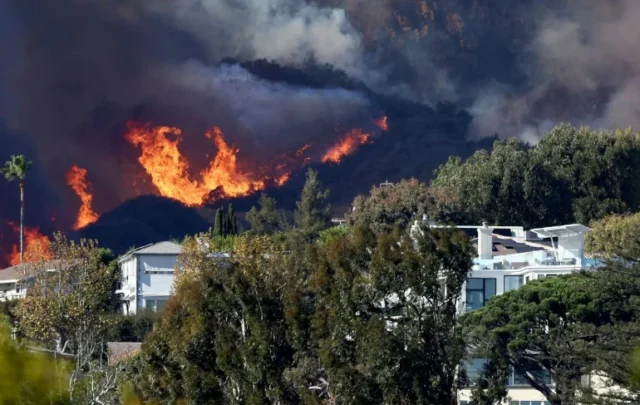Click on the headline (link) for the full text.
Many more articles are available through the Energy Bulletin homepage
Understanding peak oil – Why we need the national academy of sciences to study peak oil
Phyllis Sladek, The Oil Drum
Peak Oil: Our Need for Immediate Scientific Investigation – and Action
A growing number of international geologists and analysts warn of a looming catastrophe with the onset of the decline in the global supply of oil [1]. Likewise, reports by several federal agencies, including the US Army Corps of Engineers, point to the need for immediate action, because the foreseeable impacts on our infrastructure and economy are without precedent [2].
Please sign our petition, calling on President Obama and Congress to direct an immediate scientific investigation by the National Academy of Sciences (NAS).
(18 June 2009)
Thanks to Gail Tverberg at The Oil Drum for posting the article which previously appeared at Energy Bulletin. -BA
Peak flow rates, not peak oil?
by Kate Mackenzie, Energy Source (blog), Financial Times
Neil McMahon at Bernstein Research says it’s not peak oil, but peak well flow that is the problem. He does however touch on similar themes advanced by peak oilists; namely that remaining oil reserves are becoming more difficult, and expensive, to recover. He recounts the phenomenal flow rates of some of the most famous ‘gushers’ of bygone days, notably the Lucas I well at Spindletop, Texas.
Finds such as this were ‘drilled to death’ and flow rates fell, especially as pressure subsided. High flow rates had something of a renaissance thanks to the North Sea and other offshore discoveries of the 1980s and 1990s, and McMahon writes that these flow rates were critical for the expensive and difficult engineering required to develop the fields.
Today, however, he writes that the industry is not coming to terms with the lower flow rates that newer discoveries will provide.
(19 June 2009)
The pitfalls of natural gas as the default climate change option
Kate Mackenzie, energysource (blog), Financial Times
Cheap, plentiful natural gas is a mixed bag. With a glut of natural gas and depressed demand in the US, the industry outlook may have been glum. Plenty of big LNG projects are still going ahead. So news today that US natural gas reserves may be much bigger than thought may not be welcome news for many.
… Environmental policy blogger Joe Romm recently described natural gas as a ‘game changer’ making the Waxman-Markey greenhouse gas emission targets ’so damn cheap and easy to meet’.
Like cheap oil, cheap gas is not good news for investment in renewables, as Environmental Capital pointed out last week.
But Peter Hughes, the energy & utilities director at Arthur D. Little, says there are other concerns. (We wrote about a brief but interesting paper he wrote about peak oil demand.) Hughes, who previously worked at BP in the gas business, has strong views on the risk of natural gas becoming the ‘default climate change option’ which he voiced in a speech earlier this year at Stanford University’s Program on Energy and Sustainable Development.
In comparison to say, carbon capture and storage or nuclear plants, the relatively short lead times, lower costs and political simplicity of combined cycle gas turbines makes it easier. The issue of timescale is important, Hughes argues, but he adds:
As the need for new generating capacity draws closer, the failure to create an “enabling” framework for nuclear and CCS ready coal, with their much longer lead times, means that gas-fired capacity could become the only option. The knowledge that new gas-fired capacity can be brought on in such a relatively short timeframe seems to give policy-makers and politicians a degree of comfort that the lights will not go off, enabling them to put off further the big, and admittedly difficult, decisions regarding carbon regimes, nuclear and the like.
This, he argues, ignores many other risks of relying on natural gas to reduce carbon emissions. For one thing, the assumption that the US can supply its own natural gas for many years to come might not prove correct. And, as Europe has seen, gas is not free of geopolitical supply problems that oil faces. And the outlook years into the future is far from certain – Hughes points out that the US only has relatively small gas reserves compared to other parts of the world.
(18 June 2009)
GM preparing for high oil prices: chief executive
AFP via Yahoo News
General Motors is preparing for oil prices as high as 130 dollars a barrel once the world economy recovers and will develop more electric cars and biofuels, GM’s top executive said Wednesday.
“We’re planning for oil in the 100 dollars per barrel to 130 dollars per barrel range,” the bankrupt automaker’s chief executive Fritz Henderson said at an energy conference in Detroit sponsored by the Detroit Economic Club.
“This is a structural change,” he added, noting increased global demand.
(18 June 2009)





